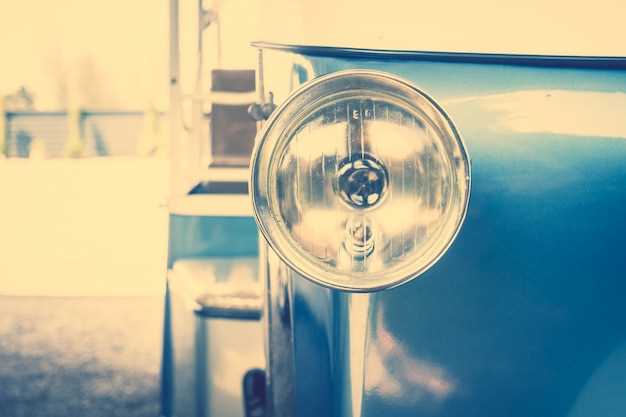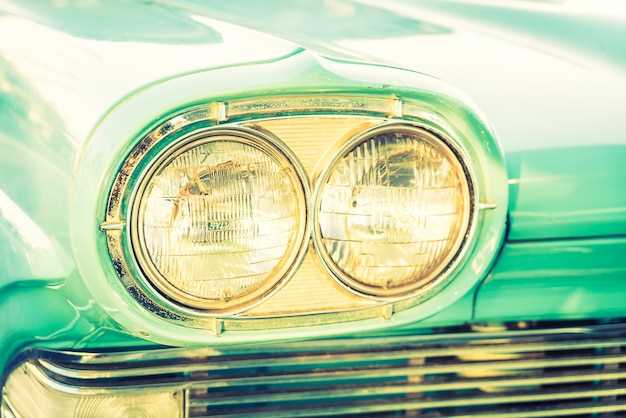
Determining the true value of a classic car can often be a complex and subjective process. Enthusiasts and collectors alike may find themselves in a dispute over the perceived worth of a vintage vehicle, making it essential to seek clarity and assurance. In such cases, obtaining a second opinion from an expert or a reputable appraiser can provide valuable insights and potentially save you from financial missteps.
Classic cars are not just modes of transportation; they are cherished investments that can appreciate significantly over time. However, factors such as condition, originality, and market demand can influence their value dramatically. When faced with conflicting appraisals or advice from friends and acquaintances, understanding when to pursue a second opinion becomes paramount. This article explores the critical moments when seeking additional expertise can lead you to a fair and accurate assessment of your classic car’s worth.
Whether you are buying, selling, or simply curious about the value of a classic automobile, knowing the right time to consult a different perspective can help you navigate the often turbulent waters of classic car valuation. By recognizing the key indicators that signal a need for a second opinion, you can ensure that you make informed decisions that are in the best interest of your automotive investments.
Recognizing Signs of an Inaccurate Appraisal

When assessing the value of a classic car, it is crucial to be aware of the signs that may indicate an inaccurate appraisal. One common red flag is an appraisal report that lacks comprehensive details. If the document fails to provide clear descriptions of the vehicle’s condition, history, and specific features, it may not be reliable.
Another indicator is a valuation that appears inconsistent with market trends. If the estimated value is significantly higher or lower than comparable models in the same condition, it might suggest a misguided opinion. A reputable appraiser will consider market data, auction results, and demand for specific models when determining value.
Using outdated or insufficient data can also lead to an inaccurate appraisal. An appraiser should utilize recent sales data and current market conditions. If the appraisal relies on old information or subjective opinions without proper research, it may warrant a second opinion.
Additionally, the experience and qualifications of the appraiser should be scrutinized. An appraiser with limited knowledge of classic cars may overlook essential aspects affecting value. Verifying credentials and past work can provide confidence in their capability. If doubts arise regarding their expertise, seeking a second appraisal is advisable.
Finally, if the appraisal is overly influenced by personal attachments or biases, it can compromise the accuracy of the valuation. An objective and detached approach is vital in determining a fair market value. Recognizing these signs can help ensure that you make informed decisions regarding your classic car’s worth.
Choosing the Right Expert for a Second Opinion

When considering a second opinion on the appraisal of your classic car, selecting the right expert is crucial for obtaining an accurate assessment. Begin by identifying professionals with specialized knowledge in classic cars, as this niche requires a deep understanding of historical values, market trends, and authenticity factors.
Look for appraisers who are certified by recognized organizations, such as the International Society of Appraisers or the American Society of Appraisers. These credentials ensure that the expert adheres to established standards and practices in the field. Additionally, consider their experience specifically with classic vehicles, as familiarity with different makes and models can significantly influence their evaluation.
Another essential aspect is the expert’s reputation within the classic car community. Seek out reviews, testimonials, or recommendations from other car enthusiasts or collectors who have pursued appraisals. Engaging with online forums or classic car clubs can provide insight into reliable appraisers who consistently deliver accurate evaluations.
During your initial consultation, assess the appraiser’s communication style and willingness to address your questions. A good expert should clearly explain their appraisal process, the criteria they use, and how they arrived at their assessment. This transparency can help you gauge their expertise and ensure that you feel confident in their evaluation.
Finally, consider the fees associated with the appraisal. While cost shouldn’t be the sole factor in your decision, it’s important to understand the pricing structure and confirm that it aligns with the level of service and expertise provided. Comparing several appraisers will also help you identify the best value for your needs.
Navigating Disputes Over Valuation Differences
Disagreements over classic car valuations can be a common and frustrating experience for enthusiasts, collectors, and sellers. When the appraisal of a vehicle differs significantly from expected values or previous evaluations, seeking a second opinion can be beneficial. A second appraisal often provides clarity and insight into the car’s true market value.
It is essential to ensure that the appraisers involved possess credible qualifications and experience in the classic car market. By comparing methodologies, potential biases, and market conditions, one can better understand the reasons behind varying valuations. An expert’s opinion can illuminate aspects like rarity, condition, and historical significance that may have been overlooked in the initial assessment.
During this process, keep in mind that communication is key. Engage with both appraisers to discuss their findings and rationales. This dialogue can assist in reconciling differences and may uncover new information that affects the value. If disputes remain unresolved, consider appealing to an industry-standard valuation guide or a classic car auction house for a more authoritative opinion.
Ultimately, navigating disputes over valuation differences requires patience and thoroughness. A well-researched second opinion can not only help in achieving a fair outcome but also restore confidence in the valuation process itself.




